Newsletter Archive Jan. 13, 2023
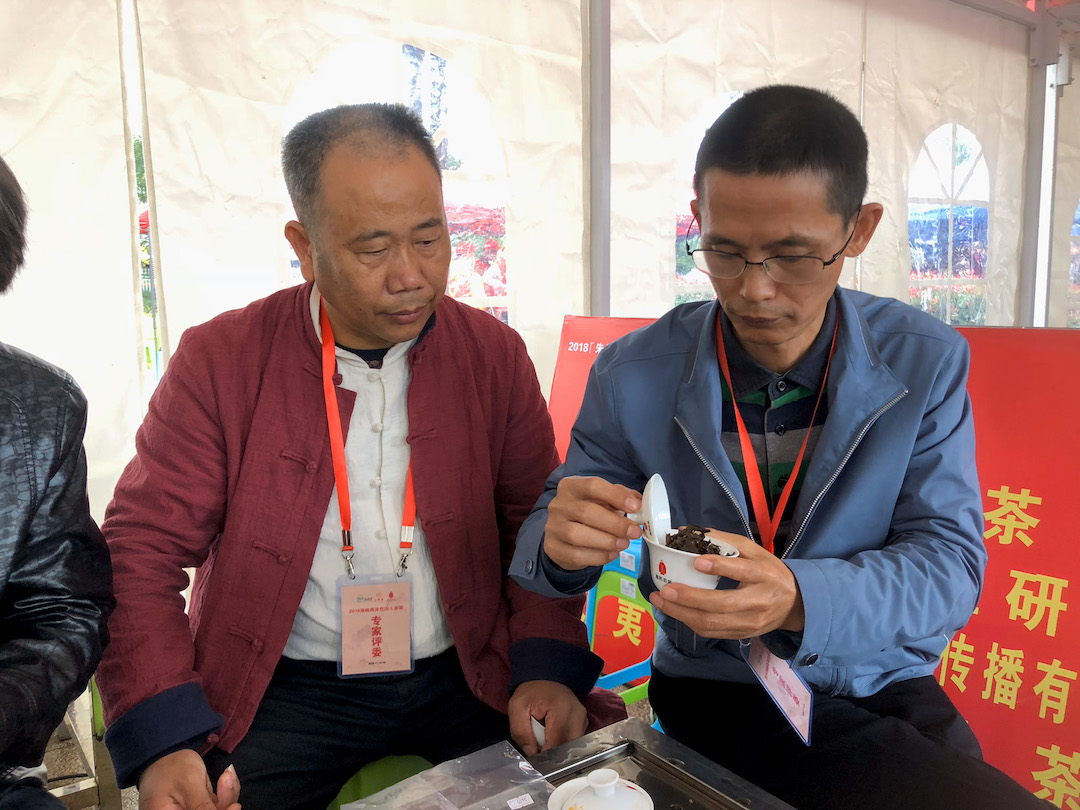
The king of Rock Wulong, Liu Guoying’s Da Hong Pao (Big Red Robe), is here. With it also comes Liu Dexi’s Tie Luo Han (Iron Monk).
We never take the availability of these teas for granted. It’s only through our friendship with the Messrs Liu that they are available to us. Every year we buy these teas, we are grateful to be able to get them, particularly for Liu Guoying’s Da Hong Pao, since exclusivity contracts make it so that all of his tea is virtually spoken for the moment it’s made. Part of what makes them so sought after is that Liu Guoying and Liu Dexi are both officially recognized as a living human treasure for their tea making skill.
What exactly do we mean by “Living Human Treasure?” It’s a term that comes from the United Nations Educational, Scientific and Cultural Organization (UNESCO). It recognizes persons of significant knowledge and skill in practices of traditional culture, so much so that they are integral to the preservation and evolution of those cultures.
In the case of the Messrs Liu, both men have the official title of Inheritor of Intangible Cultural Heritage for Wuyishan’s Rock Wulong. As “inheritor” suggests, their skills came to them through studying with the teachers before them. There’s a lineage at work here.
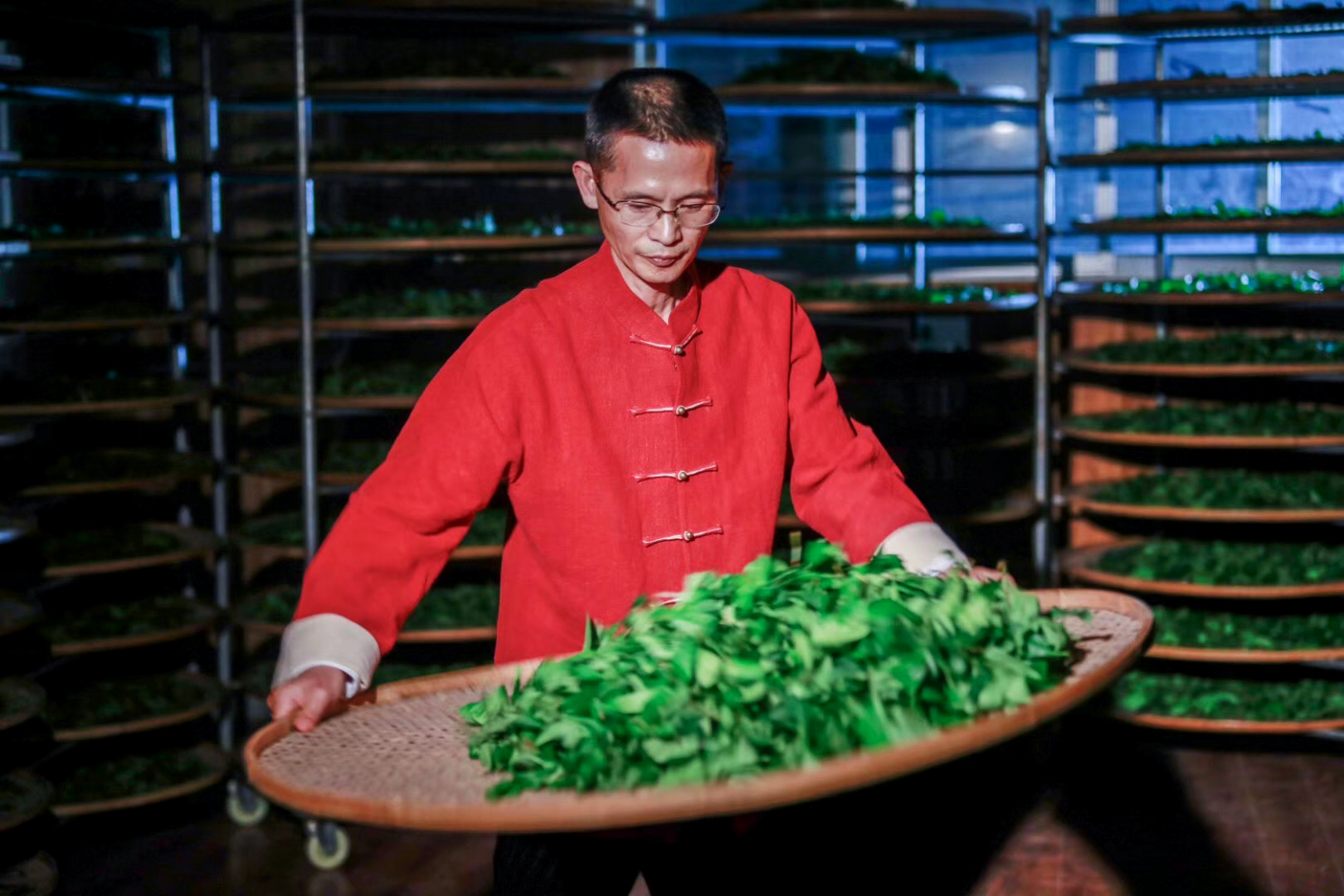
In Mr. Liu Guoying’s case, he learned from the eminent Yao Yueming. That mentorship began with their meeting in 1988, when Liu was 21 years old and fresh out of schooling and Mr. Yao was the head of research at the Wuyi (then Chong’an) Experimental Tea Garden. Mr. Yao, like his contemporaries Zhang Tianfu and Chen Dehua, brought systemization, modern plant science, and entrepreneurial savvy to rebuild Wuyishan’s traditional tea industry from collapse in the 20th century. The student and teacher relationship between Yao and Liu continued for the rest of Mr. Yao’s life, until his passing in 2006.
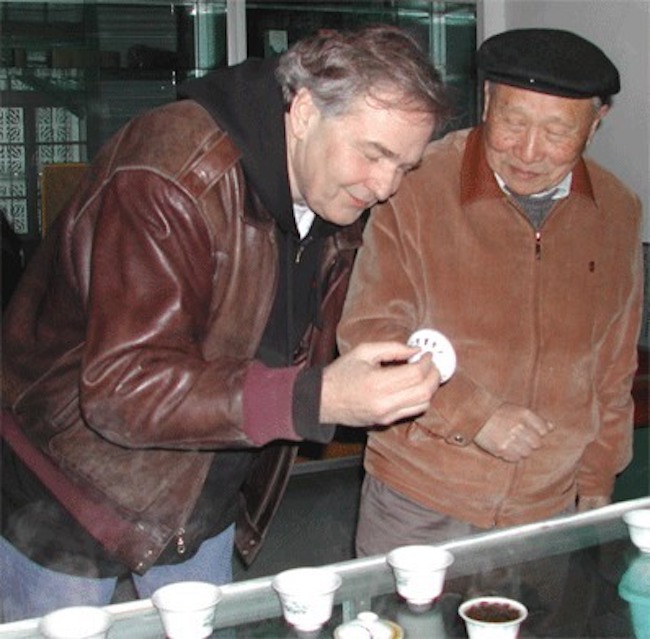
Liu Guoying has more than come into his own as a tea maker after Yao’s passing – he’s become one of the most prominent figures in Wuyishan’s tea industry today. With regard to his tea, Guoying’s personal style emphasizes depth and richness of the infusion. These Characteristics are made possible by his access to the use of high-quality leaf and an obsessive small-scale control of zuoqing, the agitation and oxidation of the leaf. Over the eighteen years we’ve known Mr. Liu, we’ve seen him experiment with roasts anywhere from the very light to the very heavy, but his Da Hong Pao always lands in the middle – a balanced and flavorful blend of cultivars with toasty, full flavors that are anchored in the dark fruit and cinnamon sharpness of his favorite bush, Rougui.
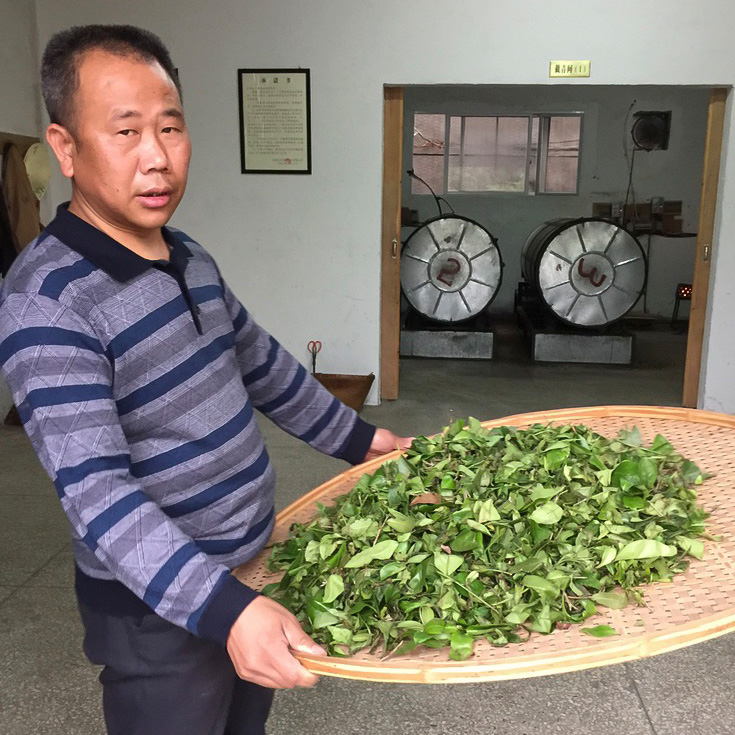
As for Mr. Liu Dexi, he learned the craft of yancha from an array of masters, including his close friend, Liu Guoying, whom he humbly calls his teacher. His first teacher, however, was master Liu Baoxun. The two men came from the same village in Wuyishan. Dexi came from a tea farming family, but only entered tea processing – an entirely different discipline – in his early 20s, when Liu Baoxun started teaching him roasting. A conspicuous roast remains one of the defining features of Dexi’s style. As we mentioned last week, the flavors of his teas are notable for their old-school heavier roasts and his Tie Luo Han is true to form – full, smooth, round and dark. Big on mineral, earth and crystalized sugars.
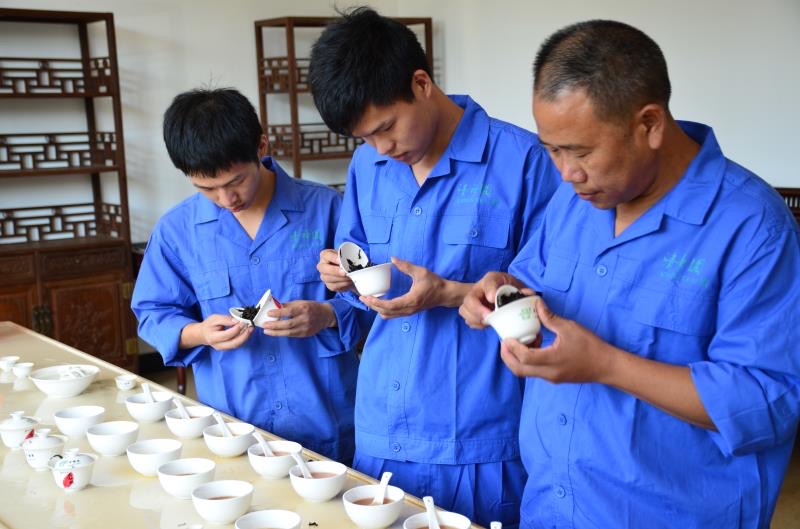
Both Liu Guoying and Liu Dexi (no relation) are recognized as living treasures not only because they practice the traditional skills of rock wulong tea making, but they are also adamant about teaching them to the next generation.
Liu Guoying is one of the most prolific teachers and producers of rock wulong. He produces all of his tea through his Yanshang Tea Research Institute. As its name implies, it’s a place that exists to teach production techniques as much as it exists to craft a product.
For his students, Mr. Liu Guoying is clear to use the word, túdì 徒弟, a word we translate into English as “apprentice” but also carries with it connotations of not just learning a trade but studying a philosophy as well.
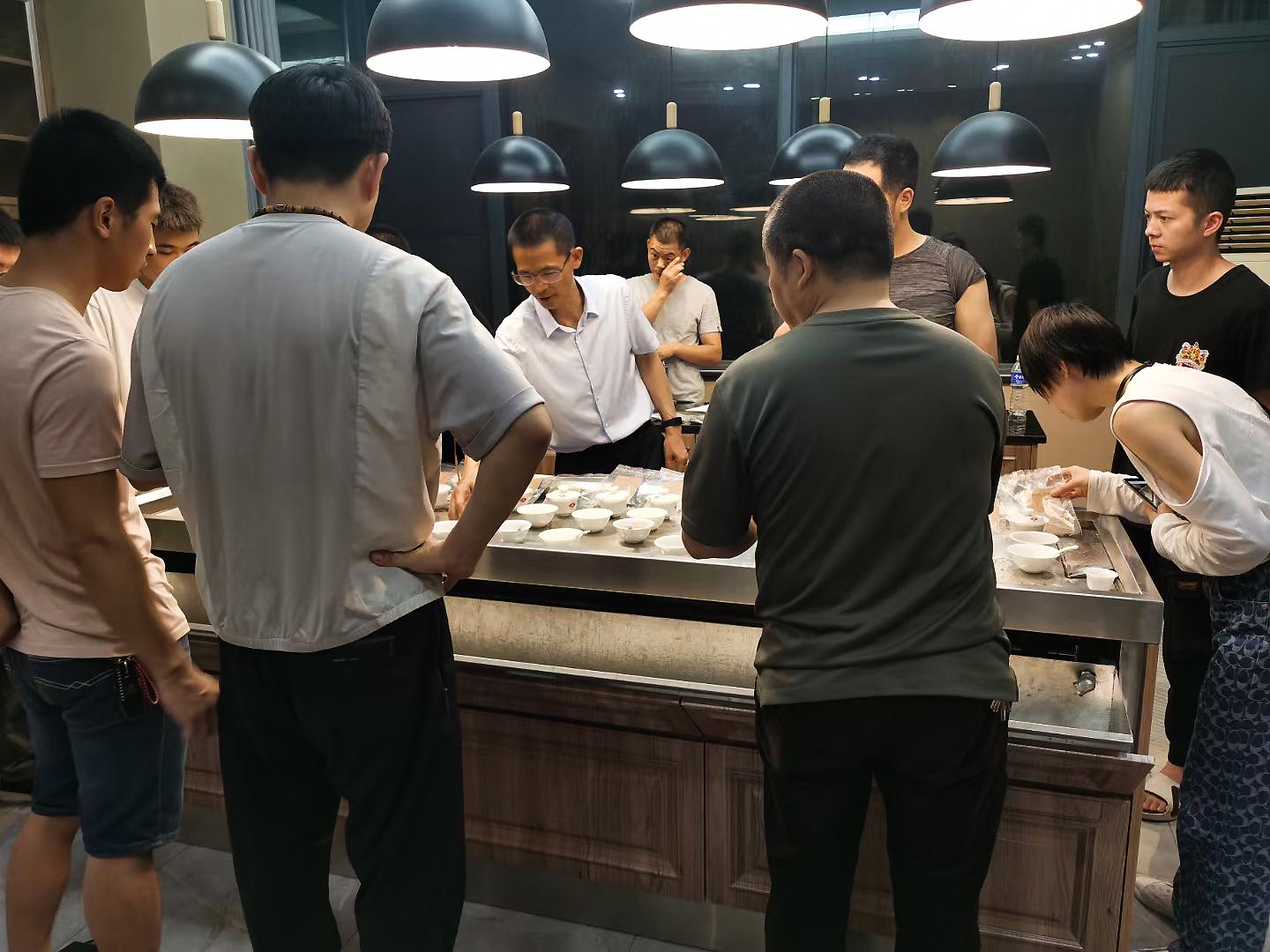
For Liu Guoying, that philosophy is a continual pursuit of better and better tea, not just his own tea, but the tea of Wuyishan as a whole. He’s noted as saying that in order for a heritage to survive, there shouldn’t be just one great master, but hundreds. Observing the meteoric rise of Wuyishan’s tea industry in just the time we’ve known two Messrs Liu, I think it’s safe to say that they’re doing a laudable job of preserving that heritage.
